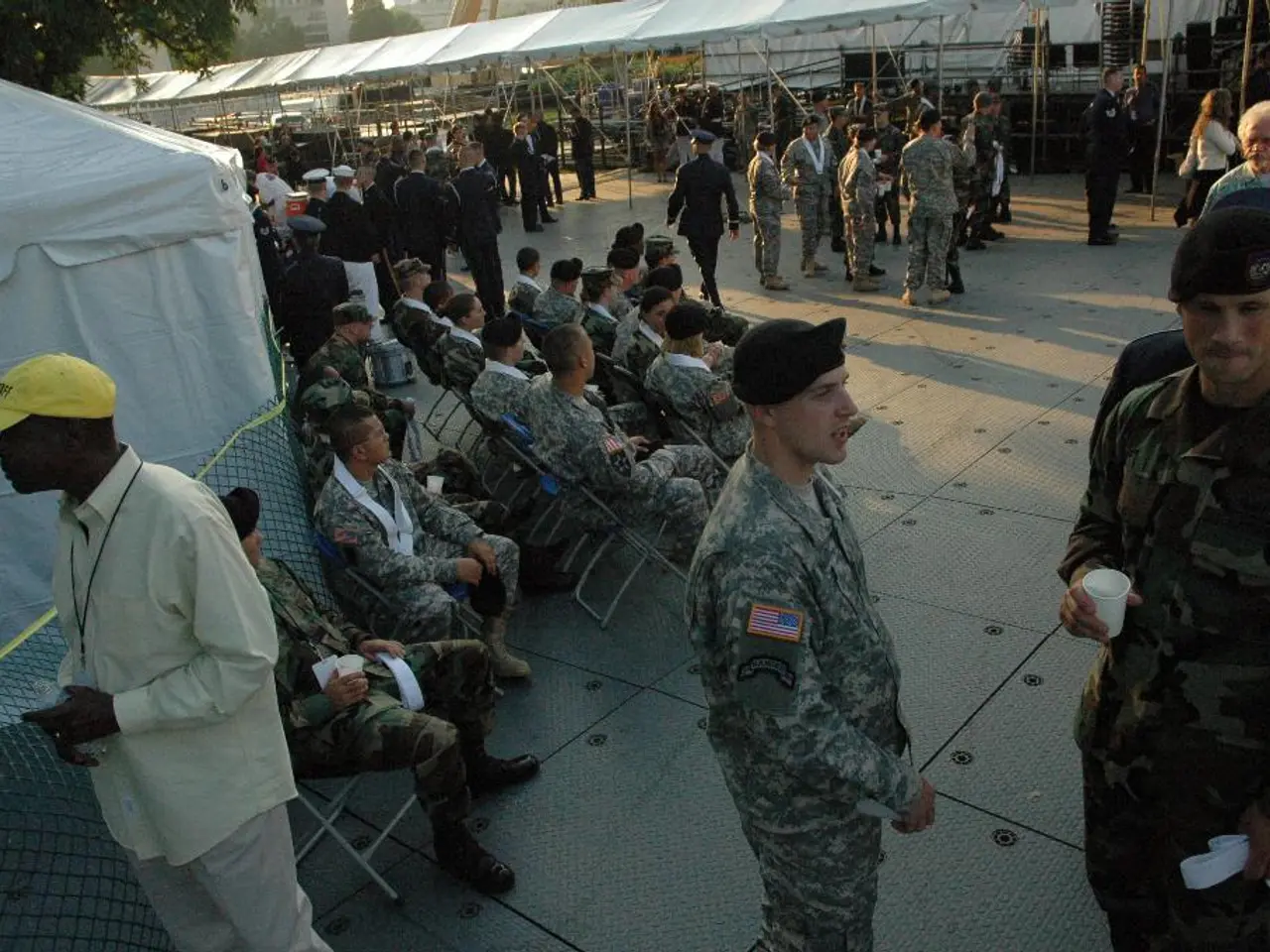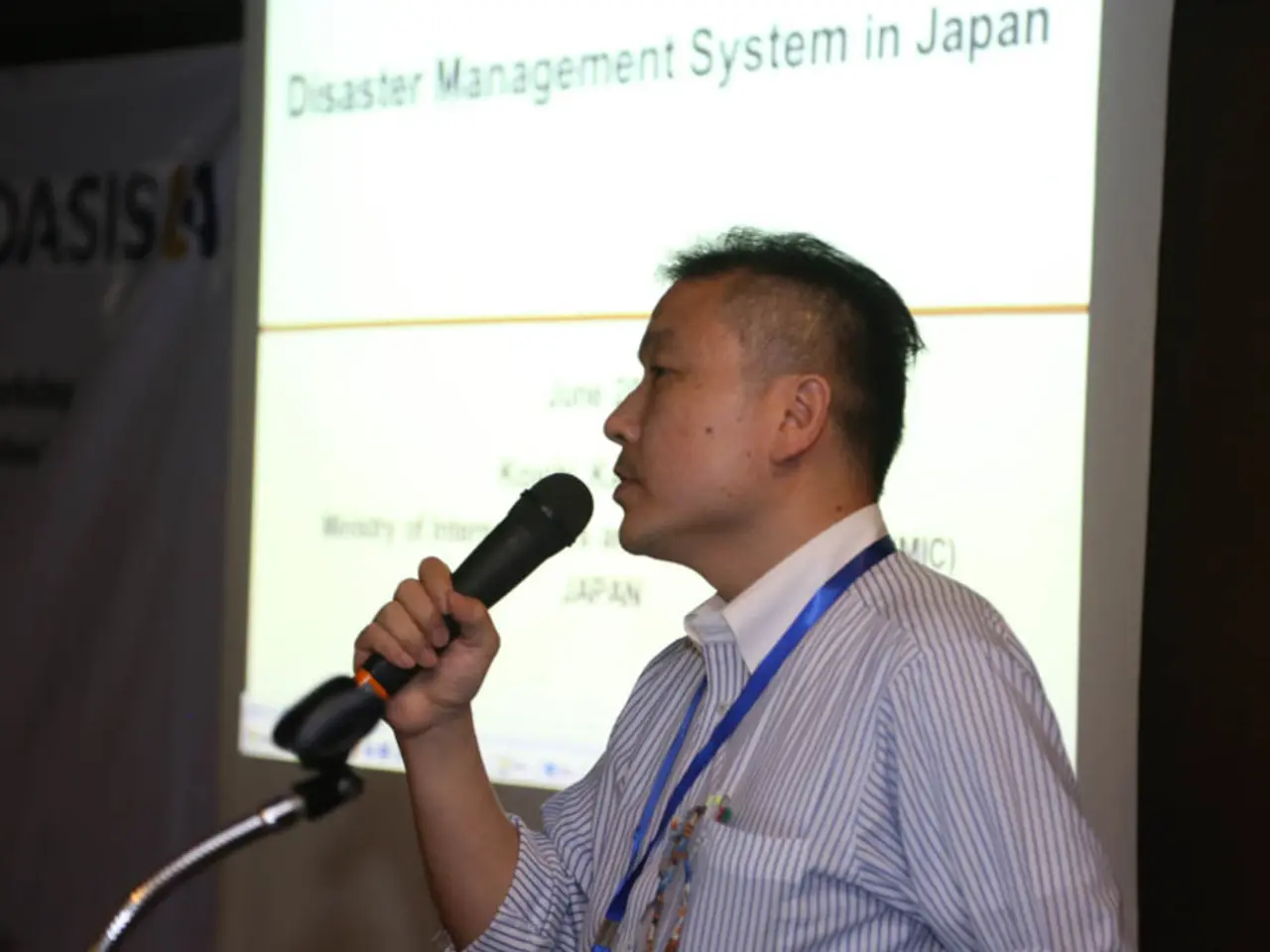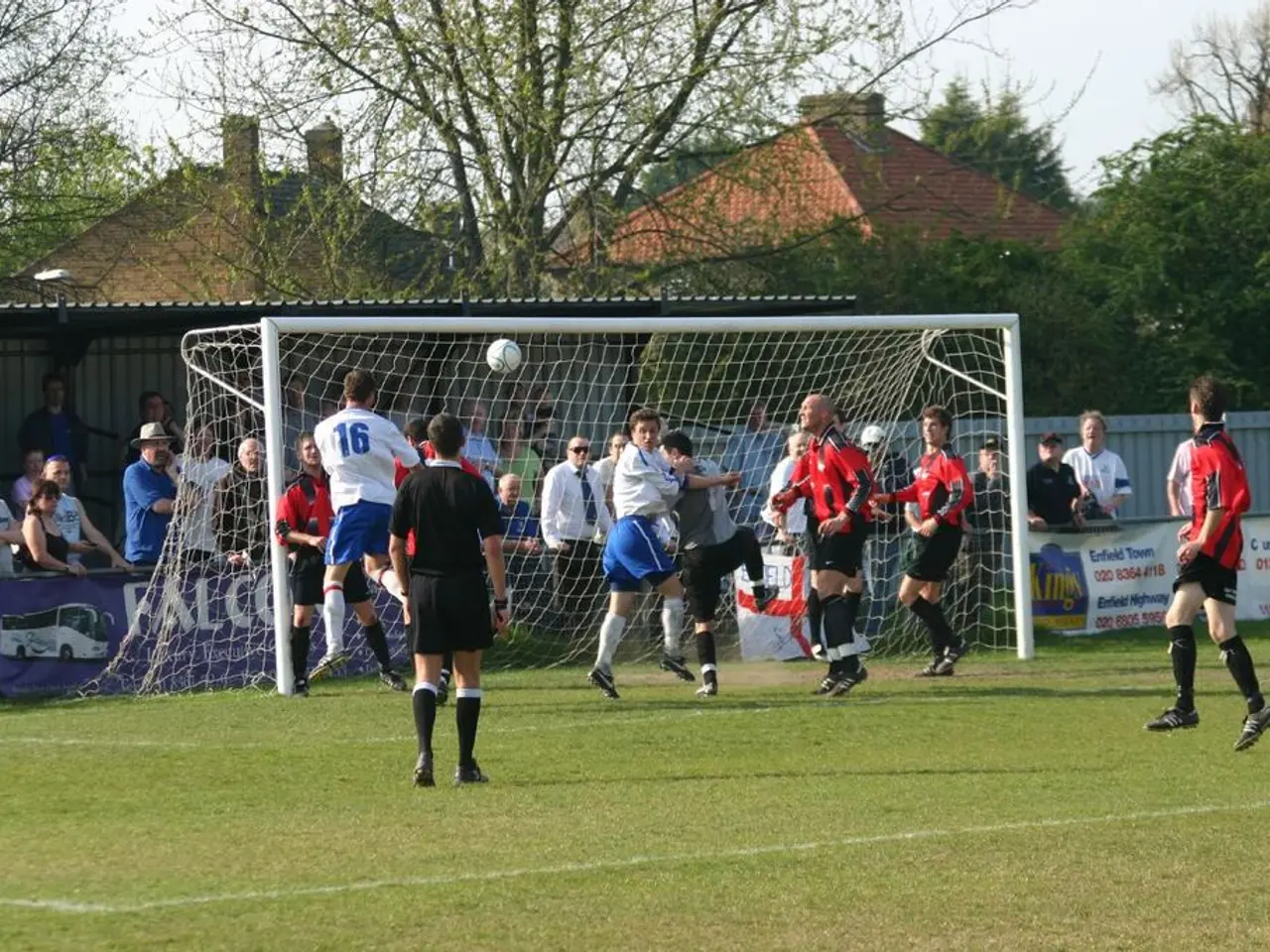Gear Up for the Gridlock: "Bergisch Brawl: Traffic Edition"
Trying to Address Traffic Conundrum: Efforts of Kreutz and Felsch
We deliver the morning's local news rundown straight to your email every day at 7:07 a.m. Sharp!
Free Newsletter Sign-UpGet ready to dive into the cutthroat world of municipal politics in Bergisch Gladbach, a city plagued by crumbling streets and a halting bike path network. In a heated debate at the Citizen's Club, mayoral hopefuls Alexander Felsch and Marcel Kreutz squared off over the traffic issues that matter most to the citizenry.
The meeting at the Citizen's Club was tense, charged with emotion as both candidates wrestled with the city's troubled transportation predicament that has left the community feeling uneasy and frustrated.
From the failing roadway repairs to the desired expansions of bike paths and prioritizing the safety of children, these buzzing issues were the conversation starters that ignited an intense debate. The Citizen's Club had rolled out the red carpet for the mayoral hopefuls in an attempt to shed light on the most pressing traffic problems and to brainstorm actionable solutions for the upcoming municipal election.
The evening was the second installment of a series of eventful Citizen's Clubs ahead of the September elections, where the mayoral candidates Felsch (CDU, FDP) and Kreutz (SPD, Greens) engaged in discussions with experts and residents on the significant problems faced by the city. Traffic was voted the top priority by a landslide in our "Your Voice, Your Topics" survey.
The Long and Winding Road
The nervous energy of guests was palpable as they described the city's roads and bike lanes as pockmarked, stuttering, and badly in need of a facelift. The city's decaying infrastructure had left many questioning why the repairs were taking so long – even with extensive road construction programs in place.
Winfried Krux, a civil engineer who has spent over 30 years working in the transportation sector, serves as chairman of the Citizen and Homeland Association Refrath. According to Krux, the city has a tendency to prioritize prestigious projects while pushing aside what he sees as urgent matters. "Since 2017, the Citizen and Homeland Association has organized discussion rounds with mayors (candidates)," stated Krux. "Ninety percent of the questions we probed the then-mayor, Lutz Urbach, in 2017 are the same ones we asked Felsch and Kreutz last week."
Cycling Traumas: The Limbo Lane
Krux also voiced concerns about the state of the bike paths, many of which failed to meet the necessary standards for a true cycling route. As a result, cyclists were forced to huddle on the road, battling with automobiles on Bensberger Straße in Heidkamp or navigating the Dolmanstraße in Refrath.
Alexander Felsch lamented the city's infrastructure woes as Bergisch Gladbach's biggest hurdle in terms of transport. "If you venture from Leverkusen to Schildgen, you can hear the Bergisch Gladbach city sign while scudding through potholes," Felsch said, alluding to the dilapidated road surface's jarring impact on passengers.
By Felsch's account, the city had set aside €12 million for road construction in the last two years, but only €4.6 million had been spent. Despite cycling being such a pivotal mode of transportation, the sum allocated for bicycle traffic slipped to a measly 5%.
Maintaining existing bike paths is just as important, Felsch asserted. To ensure rider safety, he advocated for regularly cleared bike lanes, proper markings, and the elimination of pesky foliage. The work at the maintenance yard should be staffed to expedite the filling of deep potholes.
A guest from the audience observed that potholes are merely temporarily patched – sometimes for only three months at a time – instead of being permanently repaired with standard techniques found in other countries.
The Road Ahead
Marcel Kreutz attributed the poor condition of the streets to half a century of neglect. However, according to Kreutz, there have been instances where financial resource constraints or emergency repairs necessitated prioritizing other pressing needs.
"If I had been mayor four years ago, I would have conducted a thorough assessment of the city's danger spots and prioritized streets in dire need of repair," said Kreutz. He argued that it's crucial to be transparent about ongoing and future improvement projects for the benefit of the city's residents.
There is already a priority list, countered moderator Georg Watzlawek. "And that's exactly the right approach: to be transparent and honest. We can't address every issue within a year due to limiting factors like funding and labor," said Kreutz.
Solutions Beyond Two Wheels
Georg Sprenger, a board member of the Association for Sustainable Mobility in GL, has collaborated with TH Cologne to analyze the city's traffic flows with the aim of improving them. He observed that several promising solutions have been presented, but they remain unimplemented or are delayed.
According to Sprenger, the city's aging infrastructure is "seemingly designed for chaos," posing particular perils for Pedelecs, which can reach speeds up to 25km/h. The bike lanes, painted red, are deemed unfit for cycling as they obstruct rather than assist riders.
Protecting the Pedestrians and Pedalers of Tomorrow
The safety of children in traffic is a matter of concern for the Kidical Mass, an organization advocating for measures to ensure that young people can travel safely to school and kindergarten. "The 19,000 children and young people in Bergisch Gladbach are rarely taken into consideration in discussions about city traffic," expressed Melanie Baierl, the initiator of Kidical Mass, who shared frustrations as a mother of two.
Baierl believes the establishment of physically separated infrastructure for children, where mistakes are allowed to occur as learning experiences, is essential. With the slim bike lanes, congested streets, and potholes, many parents refrain from permitting their children to cycle unsupervised into the city. This, in turn, results in more parent taxis lining up outside schools, perpetuating the hazardous cycling climate.
Under Baierl's direction, Kidical Mass drafted an application in October for the introduction of four school streets. One would be implemented experimentally starting from the next school year. Baierl shares reservations over the cautious approach which she believes stifles progress and voter support for necessary traffic reform.
"I advocate for a daring approach to such matters," she remarked, extolling the dedication of school principals and parents who support the initiative.
According to Bernd Beckermann, the spokesperson for transport policy for the General German Bicycle Club, Bergisch Gladbach underperforms in many cycling aspects. Both pedestrians and cyclists have insufficient space on bike lanes painted on the sidewalks. Expanding bike paths and bike commuter routes is progressing at a snail's pace. Moreover, there is a dearth of "meaningful cycling connections" to Cologne's stops, Beckermann pointed out.
Finally, a lack of reliable and punctual public transportation hinders sustainable growth for the city. Felsch asserts that an average of one out of every three trains on the S11 fails to arrive, leading many commuters to abandon public transportation in favor of their automobiles.
Kreutz echoed Felsch's experience as a commuter during rush hour. On a packed train, he has learned to contend with half of the train's seating capacities during peak times.
Many residents express a desire to use public transportation, but opt for taxis when punctuality is critical. In the face of such customer frustrations, Felsch and Kreutz find themselves in agreement: improving public transportation is crucial for a significant shift in urban mobility.
- Despite the focus on high-profile projects, the sorely neglected issues of street repairs and improvements in Bergisch Gladbach's infrastructure have dominated discussions in the political sphere, with the general-news media and the public alike demanding long-term solutions for the city's gridlocked traffic.
- The general-news landscape has been abuzz with politics related to traffic issues in Bergisch Gladbach, where improving roadways, expanding bike paths, and prioritizing safety for cyclists and pedestrians have been identified as key concerns for the upcoming municipal elections, with mayoral hopefuls Alexander Felsch and Marcel Kreutz facing questions on their plans to address these challenges.





